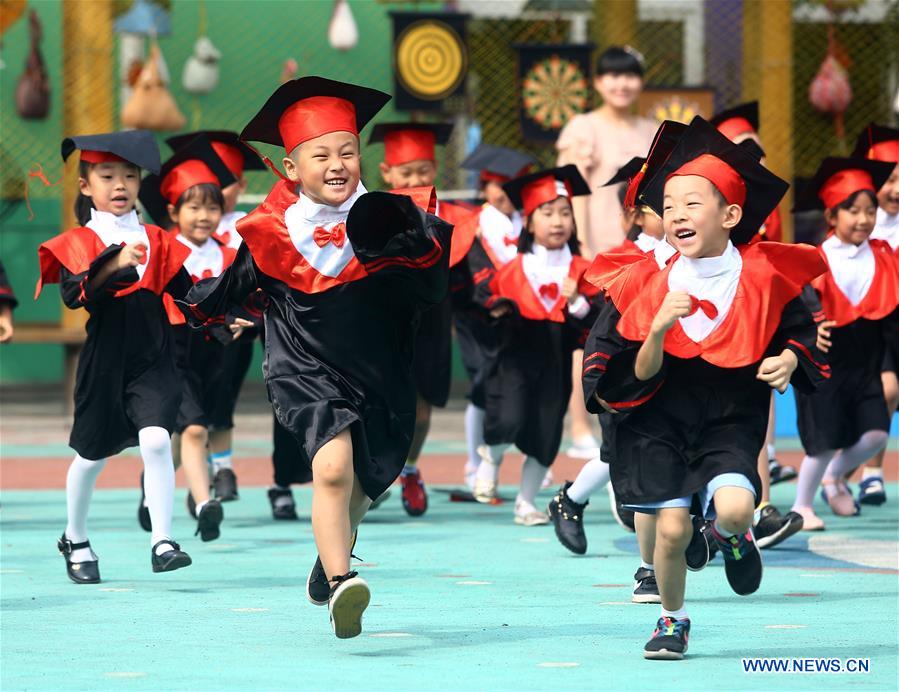The education policies from the high authorities connect education ideas with concrete education practices and thus remain a regulator and compass of education development. However, the effects of all education policies, from their introduction to the realization of certain educational goals to the solution of specific educational problems, depend on their implementation by educators. Any education policy, no matter how well-designed, if not implemented to the letter, will be like the moon reflected in a well or flowers in water.

Kindergarten children wearing gowns of Doctor Degree run at the Hedong District No 2 Kindergarten in Tianjin, North China, on June 17, 2016. (Photo: Xinhua)
As a matter of fact, the implementation of all the education policies is under the influence of a number of factors.
Take the strictest ever management of after-school training institutions in 2018 as an example. Due to the under-staffing of local education departments, the one-year governance campaign achieved limited effects, because new documents were only issued to ensure the implementation of old documents.
In some cities, unlicensed after-school training institutions still far outnumber the licensed ones, and due to the lack of effective examination, most teachers are only required to sign a written document promising not to give paid tutoring. Such kind of governance model obviously cannot effectively supervise after-school training institutions.
Likewise, the final evaluation of whether or not the governance campaign has achieved the original intention of reducing the extracurricular burden of primary and middle school students, is not based on statistics, but based on the personal feelings of parents and children themselves.
For the education policies to be effective, they not only need the declaration of values and ideas, but also the input of funding, behind which is the profound adjustment of interests.


